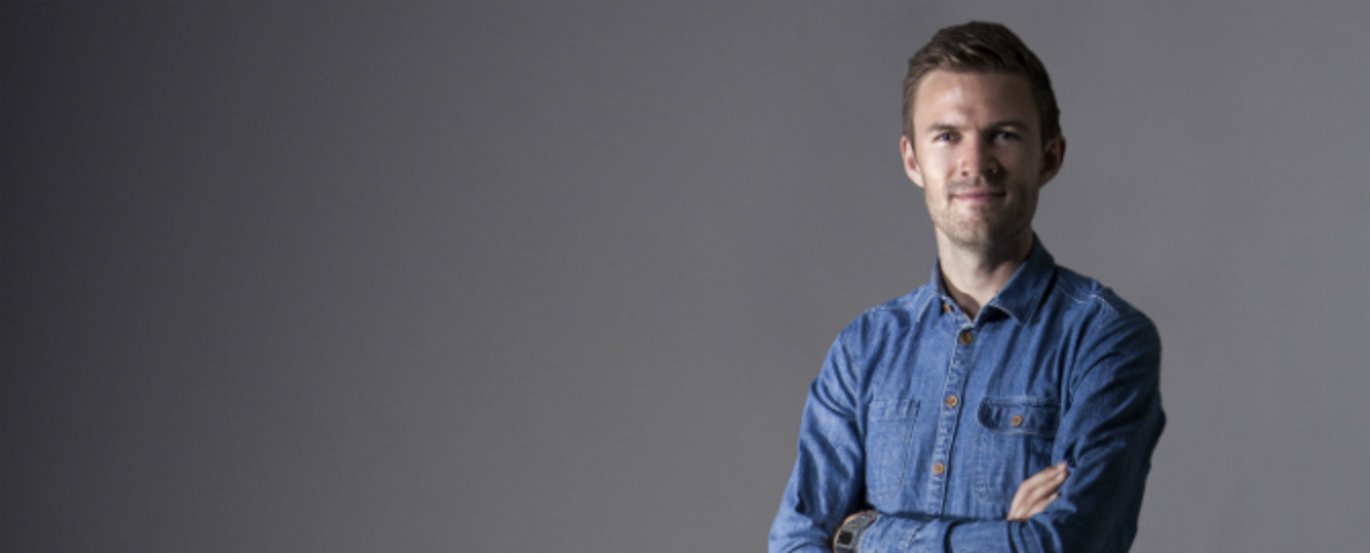Full time political science student and member of the Danish parliament.
Jeppe Mikkelsen is 23 years old and was elected to the Folketinget (the Danish parliament, ed.) in 2011 for the Danish Social Liberal Party. At the same time he is taking a BSc in political science at AU. So he must find a way to balance a 60-70 hour working week in Copenhagen with full-time study in Aarhus.

While most students spend the summer lounging in the sun or working to supplement their grant, Jeppe Mikkelsen is in the reading room with his nose buried in a book during July as members of the Danish parliament take their holidays.
"That’s part of the secret that makes it possible to do this. I don’t turn up for all of my ordinary exams. Instead I take some of them as re-examinations during the holiday. It certainly isn’t optimal but it’s a way of making it work," says Mikkelsen, who is just completing his fourth semester and hopes to complete his degree in seven semesters.
"So far things have gone all right and I’ve read what I had to. But it has meant making use of the whole marking scale for my exams," he says with a smile.
Goodbye free time
"A typical working week in the Folketinget is around 60-70 hours, but we have Mondays off to take care of work for the constituency where we are elected. Last semester that meant I could make it to a class on Mondays between 8:00 and 10:00. Tuesday to Friday I was at the parliament. And weekends and holidays were spent studying."
Naturally enough, there is not much leisure time in his closely packed programme.
"That’s the price I pay. A different student life. I’m not at the university everyday and I don’t have time to immerse myself in the courses. That's something I miss."
Social benefits
Yet he is not tempted to put his studies on stand-by and focus solely on a political career.
"A good politician has an alternative to working at the Folketinget. That’s why it’s important for me to take an education and I don’t want to wait ten years. Plus I benefit a lot socially from being a student. I'm the youngest politician in the Folketinget and my colleagues are somewhat older than me and often have families and children. So it’s nice to meet some people my own age at the university."
Not that he lives a wholly ascetic life. Once in a while there is time for a Friday bar and a trip to Roskilde Festival, and some of his swotting for exams took place in the south of France. But if he had to choose between the two, being a member of parliament would win over being a student.
"That’s just how it has to be. I wouldn’t be able to justify anything else to my voters and my parliamentary group."
Students
A word that conjures up the image of a young, relatively inquisitive type of person with a propensity to name-drop theoreticians, revel in Friday bars and consume budget-friendly pasta with ketchup.
The average student at AU is in his or her early twenties when they begin studying and a Danish national with an upper secondary school leaving examination behind them. On average they spend 28.5 hours a week on their studies, while 3.5 hours are spent on work that is relevant to their studies and 3.5 hours on work that is not study-relevant.
But more and more students fall outside of both the stereotype and the average. Omnibus met three out-of-the-ordinary students.
Source: Your Study Choice 2012 and Study Environment 2011
Translation by Peter Lambourne.

